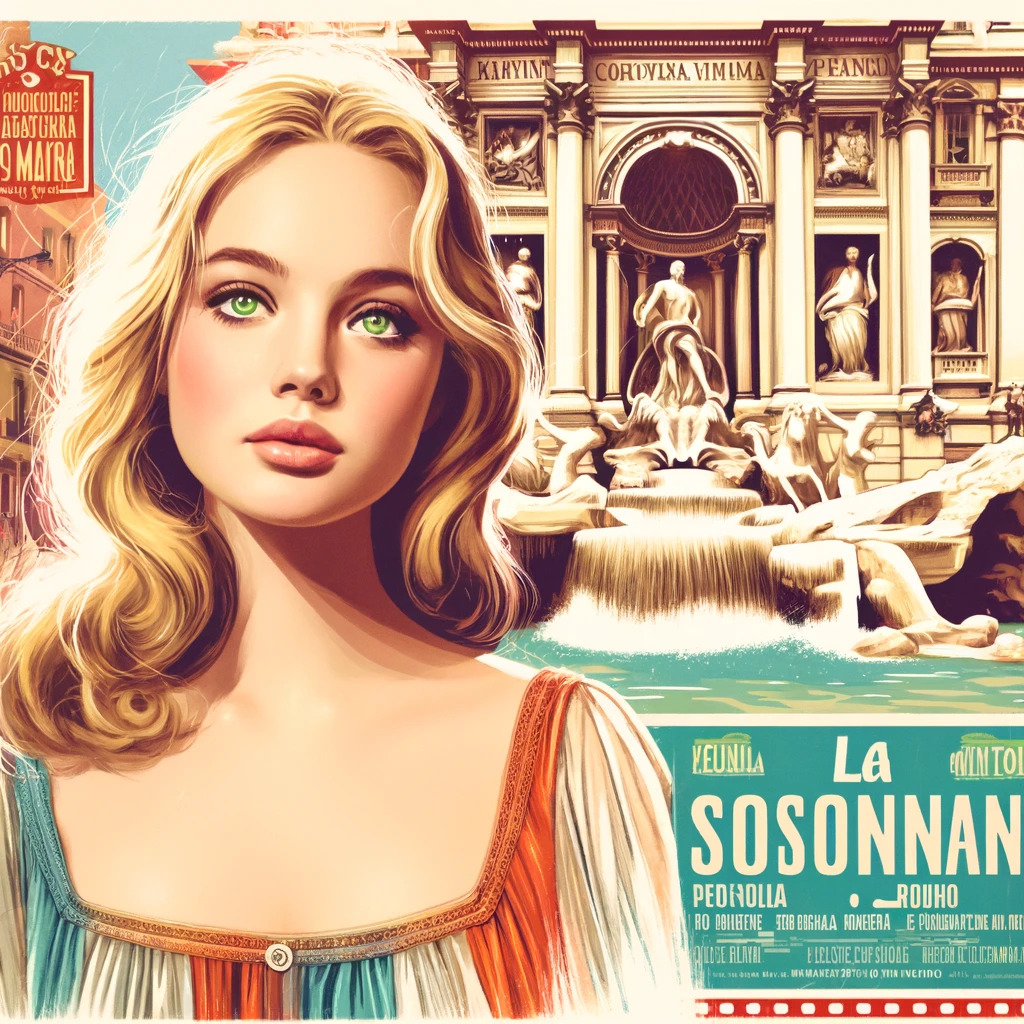In the kaleidoscopic world of cinema, Italy stands as a grand maestro, orchestrating a symphony of visual and auditory splendor that has reverberated through decades. Italian cinema is not merely an art form; it is a living, breathing entity that whispers the secrets of a nation's soul, reflecting its heartbeats, its sighs, and its passions. It is a poetic rebellion, a love letter to the art of storytelling, signed by the hands of visionary directors, immortalized by the faces of legendary actors and actresses, and serenaded by the haunting melodies of masterful film scorers.
Directors: The Architects of Dreams
The directors of Italian cinema are the architects of its dreams, crafting narratives that transcend the mundane and venture into the sublime. Federico Fellini, the magician of the screen, conjured worlds where reality and fantasy entwined in an eternal dance. His films, like "La Dolce Vita" and "8½," are not mere stories but odysseys of the human psyche, journeys through the labyrinth of existence.
Then there is Luchino Visconti, the aristocrat of Italian cinema, whose works like "The Leopard" and "Death in Venice" are grand tapestries woven with threads of history, beauty, and decay. His films are a testament to the impermanence of glory, a melancholic ode to a fading world.
Pier Paolo Pasolini, the poet and provocateur, used cinema as his canvas to paint the stark realities of life and the visceral truths of human nature. His "Accattone" and "The Gospel According to St. Matthew" are raw, unflinching explorations of the marginalized and the divine.
Actors and Actresses: The Faces of Immortality
In the realm of Italian cinema, actors and actresses are not mere performers but alchemists who transform celluloid into gold. Marcello Mastroianni, with his smoldering gaze and effortless charm, became the epitome of Italian masculinity and existential ennui. His collaborations with Fellini turned him into a symbol of a generation caught between hedonism and introspection.
Sophia Loren, the embodiment of grace and strength, captivated audiences with her magnetic presence and profound emotional depth. In films like "Two Women" and "Marriage Italian Style," she transcended the screen, becoming a living testament to the resilience of the human spirit.
Anna Magnani, the volcanic force of nature, brought raw, unfiltered humanity to her roles. Her performance in "Rome, Open City" remains a searing portrayal of pain and defiance, a haunting reminder of the scars left by war and oppression.
Film Scorers: The Invisible Magicians
The film scorers of Italian cinema are the invisible magicians who conjure emotions from the ether, weaving music into the very fabric of the narrative. Ennio Morricone, the maestro of maestros, created soundscapes that transcended the auditory, becoming integral to the storytelling itself. His scores for Sergio Leone's spaghetti westerns, like "The Good, the Bad and the Ugly," are iconic symphonies of tension, grandeur, and melancholy.
Nino Rota, with his collaborations with Fellini and Francis Ford Coppola, composed music that was both whimsical and profound, capturing the essence of the human experience in melodies that linger long after the credits roll.
Spaghetti Westerns: The Mythic Frontier
And then, there are the spaghetti westerns, that peculiar, enchanting genre that redefined the American West through an Italian lens. Sergio Leone, the visionary behind this transformation, turned the barren landscapes of Almería, Spain, into mythic frontiers where antiheroes and outlaws played out their destinies against the backdrop of Morricone’s haunting scores.
In "A Fistful of Dollars," "For a Few Dollars More," and "Once Upon a Time in the West," Leone deconstructed the mythology of the West, replacing the clear-cut dichotomy of good and evil with a morally ambiguous, hyper-stylized narrative that resonated with the disillusionment of the times.
A Legacy Unfurling
The legacy of Italian cinema is a testament to the enduring power of storytelling, a reminder that the art of film is not confined to the boundaries of language or geography. It is an ever-unfurling tapestry of human experience, a chorus of voices that echo through the corridors of time, inviting us to lose ourselves in its beauty and to find ourselves in its truths.
In this grand, ongoing narrative, we are all participants, dreamers and witnesses to the magic that Italian cinema continues to bestow upon the world. It is a legacy that belongs to us all, a shared treasure that invites us to delve deeper, to look closer, and to listen with our hearts to the stories it so eloquently tells.


